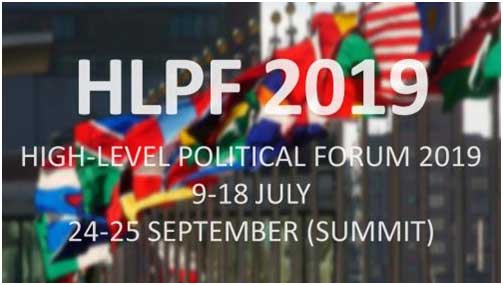
A UN report issued prior to the recent High Level Political Forum (HLPF) meeting in New York has expressed concern at the lack of progress towards implementing the Sustainable Development Goals (SDGs) and the decline in the level of international co-operation needed to implement the 2015 agreement.
ERI has added its name in support of a joint declaration “Stand Together Now for a Just, Peaceful and Sustainable World”, adopted by dozens of civil society organisations on July 17, part of which reads “We are standing alongside many others around the world in calling out a state of emergency. Humanity cannot afford to wait, people are demanding transformative change, and we are not willing to accept the current lack of action and ambition from many governments.” The full text of the statement is available here
Commenting on the lack progress, Oli Henman, Global Coordinator of Action for Sustainable Development, stated that the Goals are under threat because in many countries government policies and priorities mean inequality is rising, conflict has increased, and the opportunity to speak out is under threat.
At the very time that nations need to come together to achieve the SDGs, a new nationalism is resurgent, whilst inequality is continuing to increase, with the 26 richest billionaires now owning as many assets as the 3.8 billion people who make up the poorest half of the planet’s population.
The climate emergency is also an increasing threat with too many countries slow to act despite the United Nations saying we could have just 11 years left to limit a climate change catastrophe, whilst a global crackdown on human rights means that only 43 UN member states are currently meeting their commitments to uphold the fundamental civic freedoms of expression, association and peaceful assembly.
In short the majority of countries that have signed up to the SDGs, are not making the progress needed to avert a global break down, which means that the (HLPF) summit scheduled for September is of crucial importance to the very future of our planet.